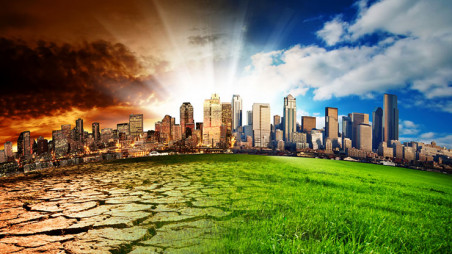Bangladesh, India, Pakistan to see 20% rise in surface ozone levels: UN report

The surface ozone levels can increase by 20% across Bangladesh, northern India, and Pakistan by the middle of the century, according to a UN report released on Wednesday (7 September).
The World Meteorological Organisation (WMO) — a UN agency for climate issues, warned against an expected increase in the frequency, intensity, and duration of heat waves in its annual report.
As per the report, if greenhouse gas emissions remain high, such that global temperatures rise by 3°C from pre industrial levels by the second half of the 21st century, surface ozone levels are expected to increase across heavily polluted areas, particularly in Asia.
This includes a 20% jump across Pakistan, northern India and Bangladesh, and 10% across eastern China, added WMO.
The rising heat would worsen air quality — harming human health and ecosystems — and also increase wildfires across the globe.
The report further stated that most of the ozone increase will be due to a rise in emissions from fossil fuel combustion, but roughly a fifth of this would be due to climate change.
Therefore, the heatwaves that are becoming increasingly common due to climate change, are likely to continue degrading air quality.
The annual WMO Air Quality and Climate Bulletin warned that the interaction between pollution and climate change would impose a "climate penalty" for hundreds of millions of people.
The "climate penalty" refers specifically to the increase in climate change as it impacts the air people breathe.
The region with the strongest projected climate penalty – mainly Asia – is home to roughly one-quarter of the world's population, stated the report.
In another report, WMO noted that Pakistan was gripped by a devastating heatwave from March to May this year, which impacted water supplies, health, agricultural output and the economy, and caused a rapid glacier melt.
To avoid the climate penalty, the Intergovernmental Panel on Climate Change (IPCC) suggests a low-carbon emissions scenario, which would cause a small, short-term warming prior to temperature decreases.



 Keep updated, follow The Business Standard's Google news channel
Keep updated, follow The Business Standard's Google news channel
















